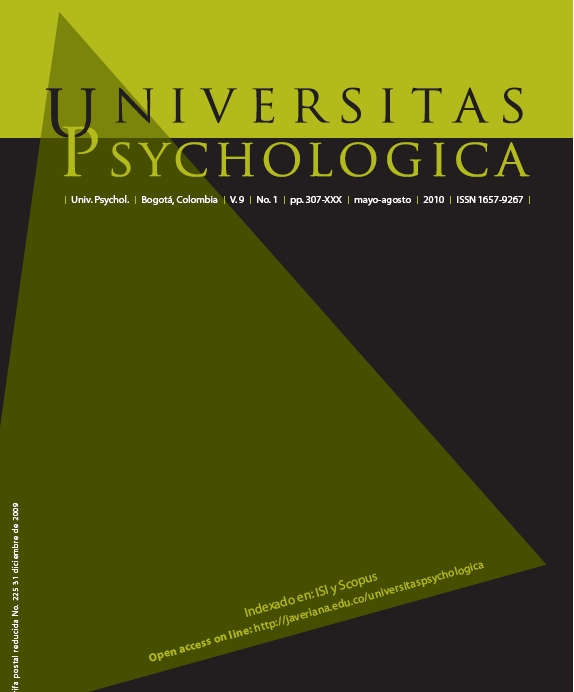Abstract
The present article is inserted into the studies on the effectiveness of the emotional disclosure of traumas and highly stressful events. Specifically, It is studied the role of writing on a same trauma or different traumas, on mental and physical health. 37 women students of psychology they were assigned to three experimental conditions: to write three consecutive days on a same trauma, to write about different traumas, and to write on trivial affaires. As dependent variables, the positive and negative affect, the level of symptoms of post-traumatic stress disorder, the level of depression and the level of health (self-reported), were assessed. Measurements were carried out session by session, and two months later. The results indicated that the negative affect diminished and the positive affect was increased, session by session. Two months later, a significant diminution of both symptoms of post-traumatic stress and symptoms of physical health for the group that wrote on the same trauma, in comparison with the other two groups, was observed. The depression level also diminished, both for the group that wrote on the same trauma, and for that wrote on different traumas. Although the model of the cognitive exposure has got a greater support, the results are discussed according to the need for a new and more extended explanatory model.
This journal is registered under a Creative Commons Attribution 4.0 International Public License. Thus, this work may be reproduced, distributed, and publicly shared in digital format, as long as the names of the authors and Pontificia Universidad Javeriana are acknowledged. Others are allowed to quote, adapt, transform, auto-archive, republish, and create based on this material, for any purpose (even commercial ones), provided the authorship is duly acknowledged, a link to the original work is provided, and it is specified if changes have been made. Pontificia Universidad Javeriana does not hold the rights of published works and the authors are solely responsible for the contents of their works; they keep the moral, intellectual, privacy, and publicity rights. Approving the intervention of the work (review, copy-editing, translation, layout) and the following outreach, are granted through an use license and not through an assignment of rights. This means the journal and Pontificia Universidad Javeriana cannot be held responsible for any ethical malpractice by the authors. As a consequence of the protection granted by the use license, the journal is not required to publish recantations or modify information already published, unless the errata stems from the editorial management process. Publishing contents in this journal does not generate royalties for contributors.


